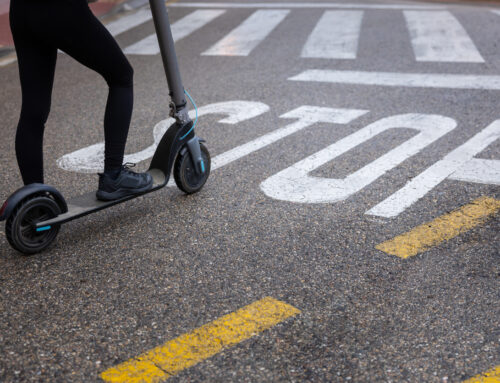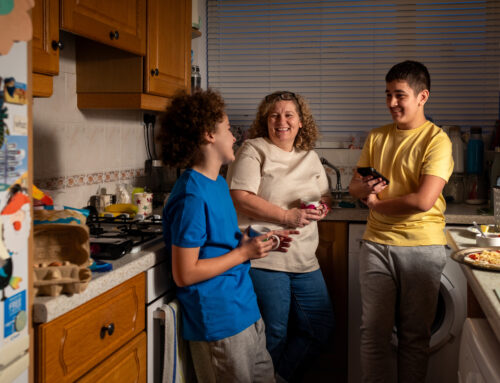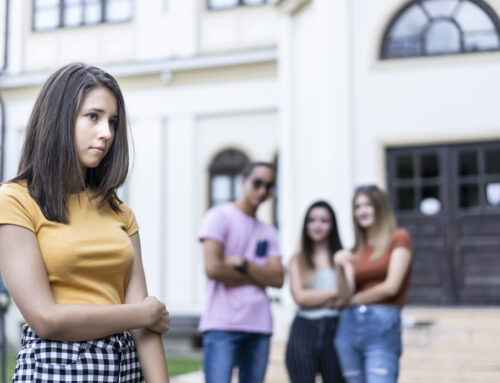Underage Drinking at Parties: Consequences for Teens

As your teen starts attending parties with their peers, starting the conversation to prevent them from succumbing to the peer pressure to drink alcohol should be a top priority for parents.
Alcohol is the most widely abused substance by youth, and every year, underage drinking results in the death of 3,500 children under the age of 21, according to the Centers for Disease Control. Research from the Cleveland Clinic reveals one in three teenagers drink alcohol, and even more alarmingly, one in five teens rode in a car with a driver who had been drinking. Not only does underage drinking increase the risk of alcoholism as an adult, but it can also impair brain development and make teens more susceptible to try other illegal substances.
While kids may start drinking to combat stress or because it makes them feel good, peer pressure from friends, family members, and the media remain the primary reason most teens take their first sip of alcohol. And one of the prime places where teens feel pressure to drink is at parties. Before your teen attends their first party, they need to know the facts about underage drinking and understand the consequences of their actions.
Risks of Attending a Party With Underage Drinking
Equip your teen with all the facts. They need to understand the consequences of attending a party with underage drinking. Make sure your teen knows they do not need to be drinking to be punished if authorities are called to the scene. On the flip side, ensure that your teen knows that they can call you to retrieve them from unsafe situations, no questions asked. It’s more important to keep them safe at the moment they realize something is wrong than to be punitive.
Know Before You Go: What to Ask Your Teen Before the Party
If your son or daughter wants to attend a party hosted by one of their friends, it’s important to ask the right questions before giving your child permission to attend. Parties can help your child build confidence, independence, and allow them to make new friends. They can also serve as a tool to teach them responsibility and build social skills. Here are some questions parents should ask before their kids attend a party.
Who is going?
If your child is going with longtime friends and children you know, it can be easier to give them the independence they deserve to attend the party.
Will their parents be home?
No parents, no party. Your child may get angry if you don’t allow them to attend the upcoming event if there isn’t parental supervision, but that’s okay. We all know nothing good happens when the parents aren’t home.
Will there be drinking?
If your child admits there may be drinking at the party, make sure to arm them with the tools they need to avoid peer pressure. Give them your expectations and help teach them how to turn down an offer of a drink. Roleplay strategies to help your child say “no” to drinking. Simply starting the conversation about underage drinking will put your teen on the right track.
How will you get home?
Make sure your teen has a designated driver and a plan for leaving the party and keeping their friends safe.
After you know the details and you’ve decided to let your child attend, establish some ground rules. Set a curfew and reconfirm transportation. Let your child know their actions at this party will lay the groundwork for future festivities. Remember, even the best-laid plans can go awry. Give your child enough money for an Uber ride home. Let them know they can call you to pick them up without any punishment if their safety is at risk.
Parents Need to Do the Right Thing
Parents often supply alcohol to underage drinkers, according to a report from the American Medical Association. Many parents decide to host parties at their homes to keep their children off the roads and under their watchful eye. One in four parents says they have allowed their teens to drink under their supervision in the past six months, and one in 12 parents allowed their teen’s friends to drink under their supervision. If a teenager is injured on your property or gets in a car accident after drinking at your home, you may be liable. Not only does it put the teens at risk, but it can also make you susceptible to civil and criminal penalties.
Take the Pledge to Stop Underage Drinking
Your teen is going to want to attend parties, and it’s important for them to have fun. Instead of banning the festivities, start the conversation and Take the Pledge to stop underage drinking. Talk it out with your child to make sure they know all the facts.



